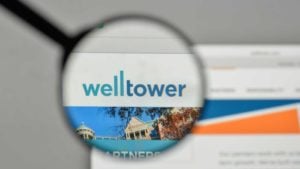No matter where we are in the economic cycle, it’s always good to remind ourselves of what worked and what didn’t. In 2017, Wall Street forecast a rough year but quite the opposite happened. Benchmark indices hit all-time records, while investors ended up being upbeat about most sectors.
In 2018, the long-running bull market took a breather as investors switched from risk-on to risk-off.
2019 has only been a little forgiving, which is why I recommend that investors get selective. And that sentiment is now multiplied eight-fold as we digest the damage caused by the novel coronavirus. Fortunately, with dividend stocks, investors have more leeway due to their generally stable nature.
Although picking high-flying growth companies is a sexier endeavor, they aren’t always the smartest stocks to buy. With passive-income yielding firms, you get the potential to make capital gains and obtain residual payouts to bolster your position. During a down period, dividends can also help you ride out the storm.
But don’t mistake benefiting from these yields as “boring” strategies. As with any asset class, you can dial up the risk for the chance of greater rewards. No one knows your investment style better than you!
The following ideas are broken down into three sections: stable, mid-level and high-yield (speculative). Each section has something to offer, depending on how much risk you’re willing to take.
Johnson & Johnson (JNJ)

Current Dividend Yield: 2.71%
If you love stable dividend stocks, Johnson & Johnson (NYSE:JNJ) is one of the best dividend stocks to buy. It is the powerhouse brand of powerhouse brands. Better yet, JNJ is levered toward the ultimate in non-cyclical industries: healthcare. Selling consumer-level products, pharmaceuticals, and medical devices, JNJ offers a robust secular business.
Of course, the company’s brand has taken a hit due to various controversies. However, the novel coronavirus has given JNJ stock renewed relevance. In part, that’s because despite the encouraging results from remdesivir – a Covid-19 treatment offered by Gilead Sciences (NASDAQ:GILD) – we still don’t know if it’s a truly effective drug. For now, your best bet for mild symptoms is over-the-counter medication, something that Johnson & Johnson specializes in.
Presumably, that may be the case for any future infectious diseases. Therefore, don’t assume that JNJ stock is just for this current pandemic.
Clorox (CLX)
Current Dividend Yield: 2.27%
Clorox (NYSE:CLX) is one of those companies that, prior to the coronavirus disrupting everything, you took for granted. Nobody wakes up wanting to clean stuff with their disinfectant wipes. Their products are there when you need them, except of course when they’re not.
That’s exactly what happened when pandemic panic struck Americans. When most folks realized that community spread had occurred in the U.S., they stormed their local grocery and appliance stores. Pretty soon, you couldn’t find any Clorox product – or their knockoff counterparts, for that matter. Obviously, that wasn’t great for soothing nerves but it did wonders for CLX stock.
It’s possible that shares will come down as it appears we have reached the peak of this crisis. But according to infectious disease experts, it’s possible that a second wave of coronavirus could hit us. Therefore, CLX stock may have a longer upside pathway. That’s not great for our collective health but it’s potentially profitable news if you’re looking for dividend stocks to buy.
Walmart (WMT)
Current Dividend Yield: 1.78%
Personally, I’ve never found Walmart (NYSE:WMT) that appealing. Every time I visit, I encounter an ambiance that resembles a pawn shop. But to many folks, whether shoppers or investors, Walmart is the king of big-box retailers. During this pandemic, I’m not going to argue that point. WMT stock deserves its place among the best dividend stocks to buy.
Apparently, not many Americans prepare for worst-case scenarios. When the coronavirus first breached the U.S., people immediately flooded their local Walmart stores. Not that I condone this, but the early birds were able to stock up on massive amounts of toilet paper and emergency supplies, while stocking up on their groceries.
Though e-commerce has attempted to disrupt the big-box retail model, WMT stock consistently comes out on top. For many consumers, nothing beats the satisfaction of on-the-spot purchases. And that sentiment probably won’t change anytime soon, which is why Walmart is one of the best dividend stocks to buy.
Duke Energy (DUK)

Current Dividend Yield: 4.46%
If you’re a real numbers person, you’ll want to pay attention to Duke Energy (NYSE:DUK). Based on a quantitative model that our own Louis Navellier developed, DUK is one of the best dividend stocks to buy.
Mixing in commonly used metrics (ie. earnings momentum) as well as propriety methods, DUK appears primed for a stellar new year.
I prefer to keep it simple if there’s no real need to complicate things. Here’s what I’m looking at: Since the tech bubble and the 2008 financial crisis, DUK has steadily rewarded investors with few hiccups.
All indications suggest that Duke Energy can keep the good times flowing into next year. As it stands, the company is the seventh-largest electric utility company in the U.S. Furthermore, management has retired many of its coal power plants, focusing instead on natural gas and cleaner energy sources.
Currently, DUK stock yields over 4%. Although slightly riskier than your conservative dividend play, Duke Energy has the right balance between stability and income.
Unilever (UN)
Current Dividend Yield: 3.65%
One of the pronounced effects of the coronavirus is that it quickly shifted consumer behaviors. With the bull market coming to an abrupt halt, regular folks just weren’t worried about discretionary purchases. That’s evidenced by the plummeting of the retail sector. Instead, what consumers gravitated toward were daily necessities, which bolsters the argument for Unilever (NYSE:UN).
A transnational consumer goods company popular in Europe, UN stock is levered toward the food and beverage sectors, along with beauty and personal care products. The latter has proved particularly important as these are product categories that we take for granted. Suddenly, with the pandemic, these were golden commodities.
But that’s not to say that UN stock is merely profitable during catastrophic events. No matter what the underlying circumstances, people need to take care of themselves. Unilever’s products allows them to do just that, which is why you should keep it on your list of dividend stocks to buy.
Coca-Cola (KO)
Current Dividend Yield: 3.58%
At first glance, Coca-Cola (NYSE:KO) doesn’t seem the most intuitive choice for dividend stocks to buy, especially during a time like this. We all know that drinking soda isn’t the best thing for your health. And in a health crisis, you don’t want to compromise yourself. Yet KO stock has proven resilient over past recessions and it may do well in the current downturn.
One of the key factors driving this robust sentiment is that Coca-Cola’s namesake products represent a respite. It’s a tantalizing treat for the senses, helping people cope with the present crisis. No, I’m not recommending that you drink your troubles away with soda. However, it’s a far cheaper alternative than many guilty pleasures.
Further, because Coca-Cola flagship products are mostly caffeinated, it’s a less expensive alternative to buying high-priced coffee. When you’re trying to save money, such an option can go a long way.
AT&T (T)
Current Dividend Yield: 6.83%
Prior to the coronavirus, the case for AT&T (NYSE:T) revolved around the strength of its underlying business. As a telecommunications giant, it’s one of the few firms that can competently roll out 5G. Further, its wireless and internet businesses are unlikely to become irrelevant. In fact, connectivity has only become more vital, especially during the forced quarantining of millions of Americans.
However, Covid-19 has diminished investors’ appetite for companies with less-than-stellar financials. Clearly, AT&T has made very expensive acquisitions, some of which have not panned out. That has always clouded the narrative for T stock.
At the same time, the coronavirus is really changing the entertainment environment. Primarily, we just don’t know when movie theaters will open and how consumers will respond to being inside a room with hundreds of strangers. This may drive the narrative for T stock regarding its entertainment portfolio.
Nevertheless, this is a risky play so don’t enter without careful thought.
Kimco Realty Corp (KIM)

Current Dividend Yield: 10.27%
I will tell you straight up that anything involving brick-and-mortar retail is a risky game. Earlier this year, I cautioned my readers about investing in retail REITs. With overall declining foot-traffic, the physical retail space doesn’t have the appeal it once did. And with shelter-in-place orders, the risk factor is amplified to a frankly unknown degree.
Beyond this crisis, the most important factor is eCommerce. Why sit in traffic and wait in lines when you can shop conveniently at Amazon (NASDAQ:AMZN)?
The flip side to this argument is that there are some retail sectors that Amazon has trouble ousting. For instance, most people find it more convenient to size their clothing at a physical apparel shop than guessing online.
In addition, some store brands offer better pricing or a better experience than Amazon. Think Walmart, Costco (NASDAQ:COST) and Best Buy (NYSE:BBY).
A retail REIT that focuses on strong brands just might have a chance post-coronavirus, hence Kimco (NYSE:KIM). KIM features multiple properties running highly demanded store brands. Moreover, a good chunk of their properties are located in lucrative markets.
Will it be enough to overcome the risk to the entire sector? I’m not so sure, which helps explain Kimco’s more than 10% dividend yield. If you’re a believer, KIM stock gives you a solid opportunity.
Welltower (WELL)
Current Dividend Yield: 6.79%
It’s always a little amusing to see a generation come of age. The news flash that everyone else knows instinctively is that time stops for no one, “youth is wasted on the young.”
With that harsh reality in mind, I bring to you Welltower (NYSE:WELL). WELL stock is a real estate investment trust specializing in senior care and facilities. Even if you’re one of the young millennials who see no use for Welltower, you still might put your parents into one of their centers.
Joking aside, I can think of no other business where revenues are virtually guaranteed, save for a funeral home. Although Welltower’s market performance has been a little choppy, in the long haul, Welltower has been a steady investment.
Still, WELL stock is one of the riskiest dividend stocks to buy because of the coronavirus. As you know, Covid-19 disproportionately affects older people with underlying health conditions. Further, the senior care industry got a black eye during this pandemic.
But it’s also fair to point out that senior care won’t go out of style based on demographic realities. Of course, we can’t forget the dividend yields, which for WELL stands at just under 7%.
As of this writing, Josh Enomoto is long T stock.






